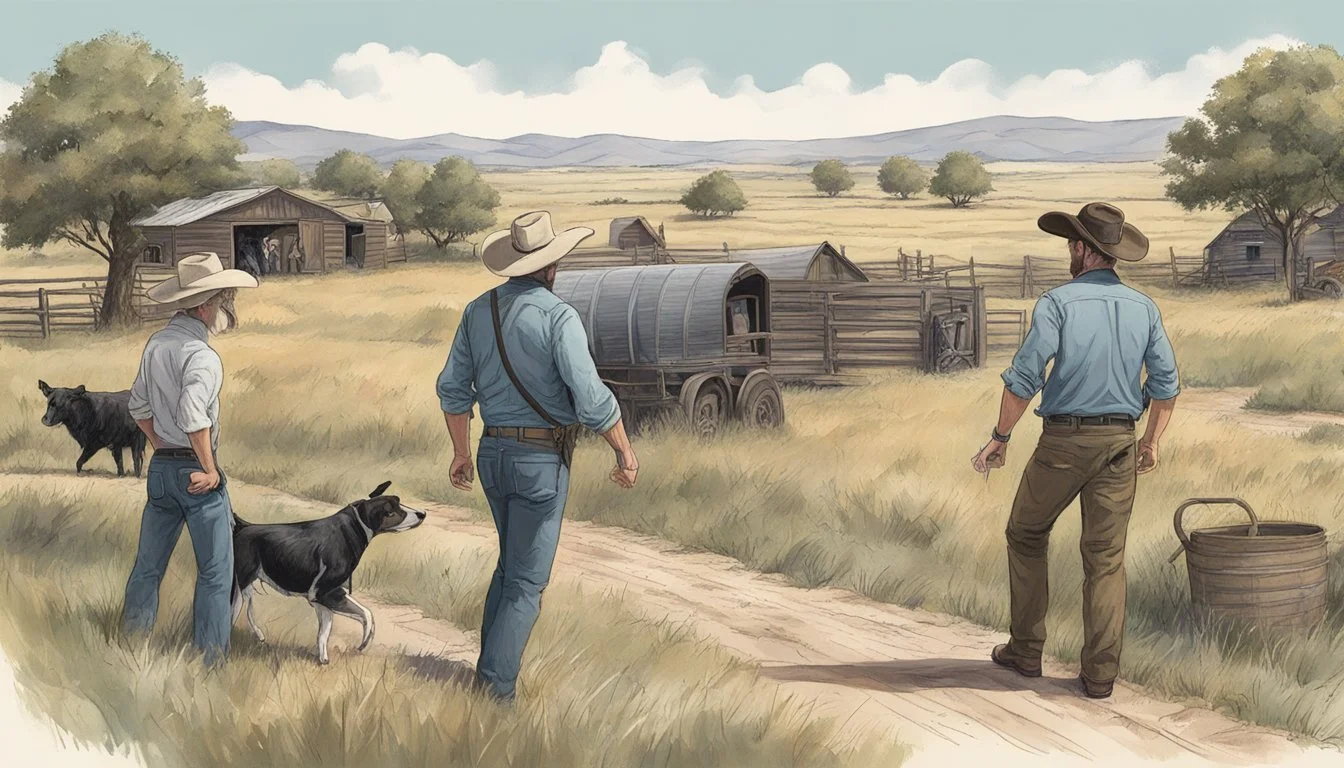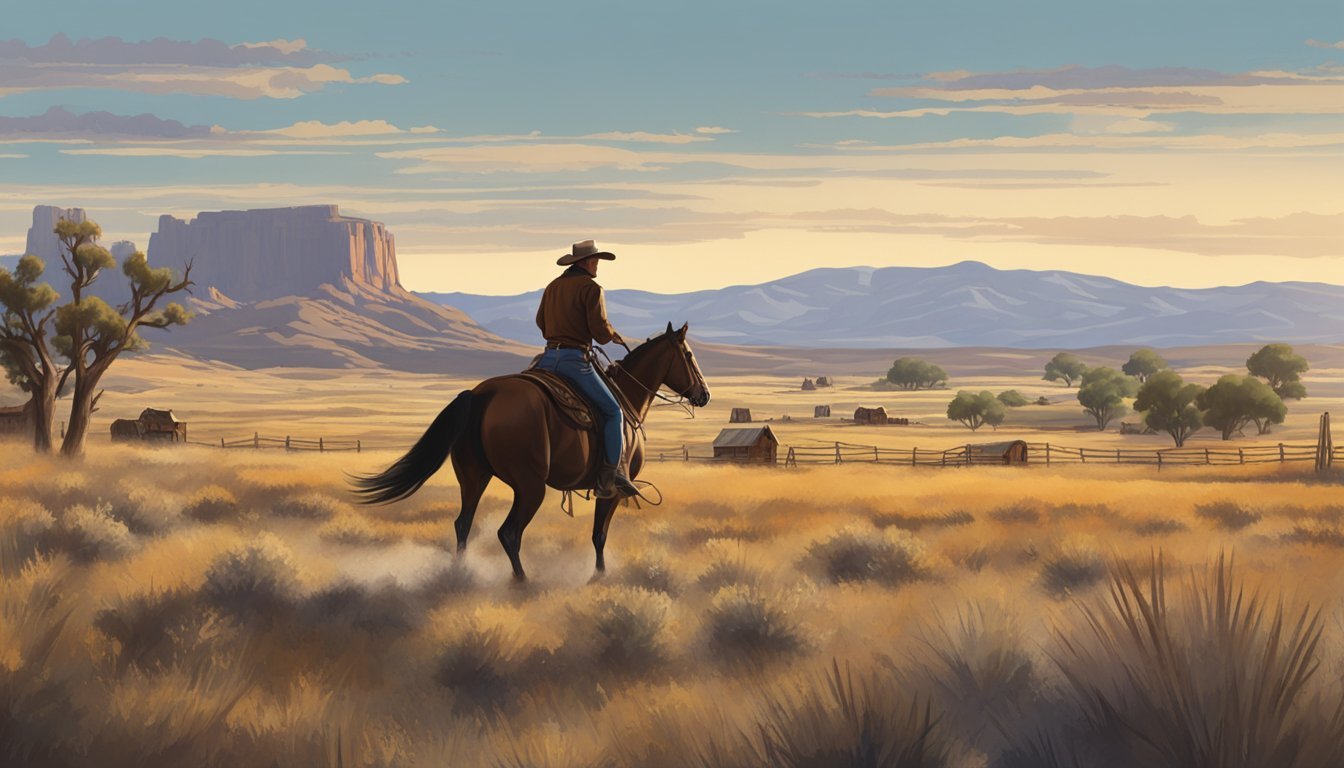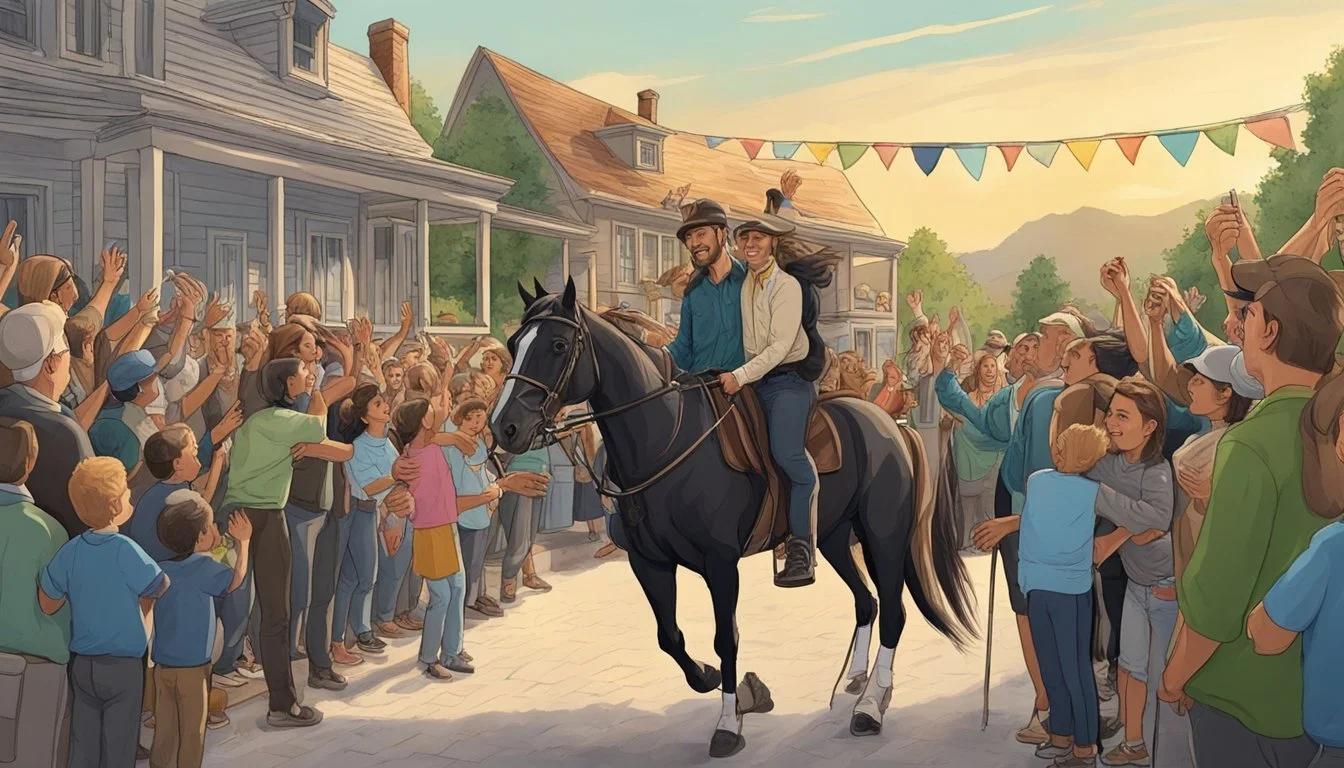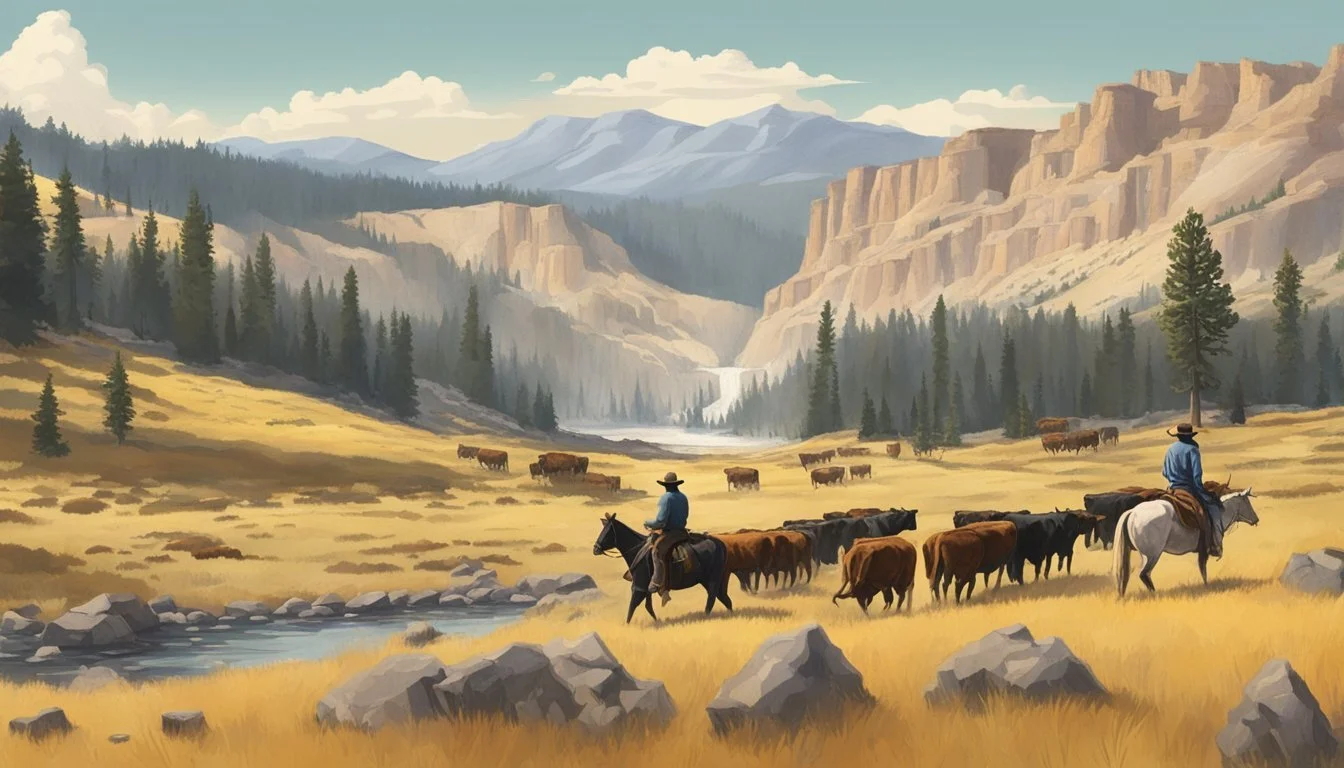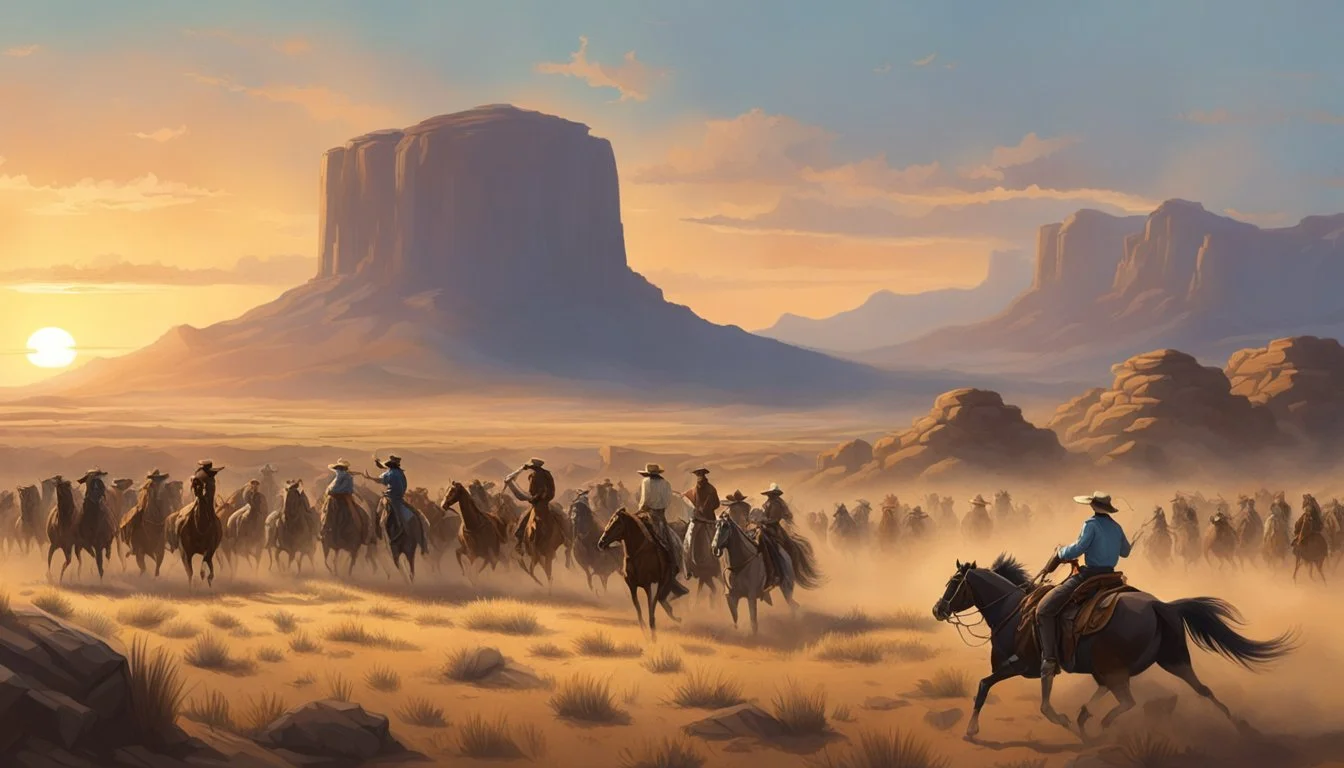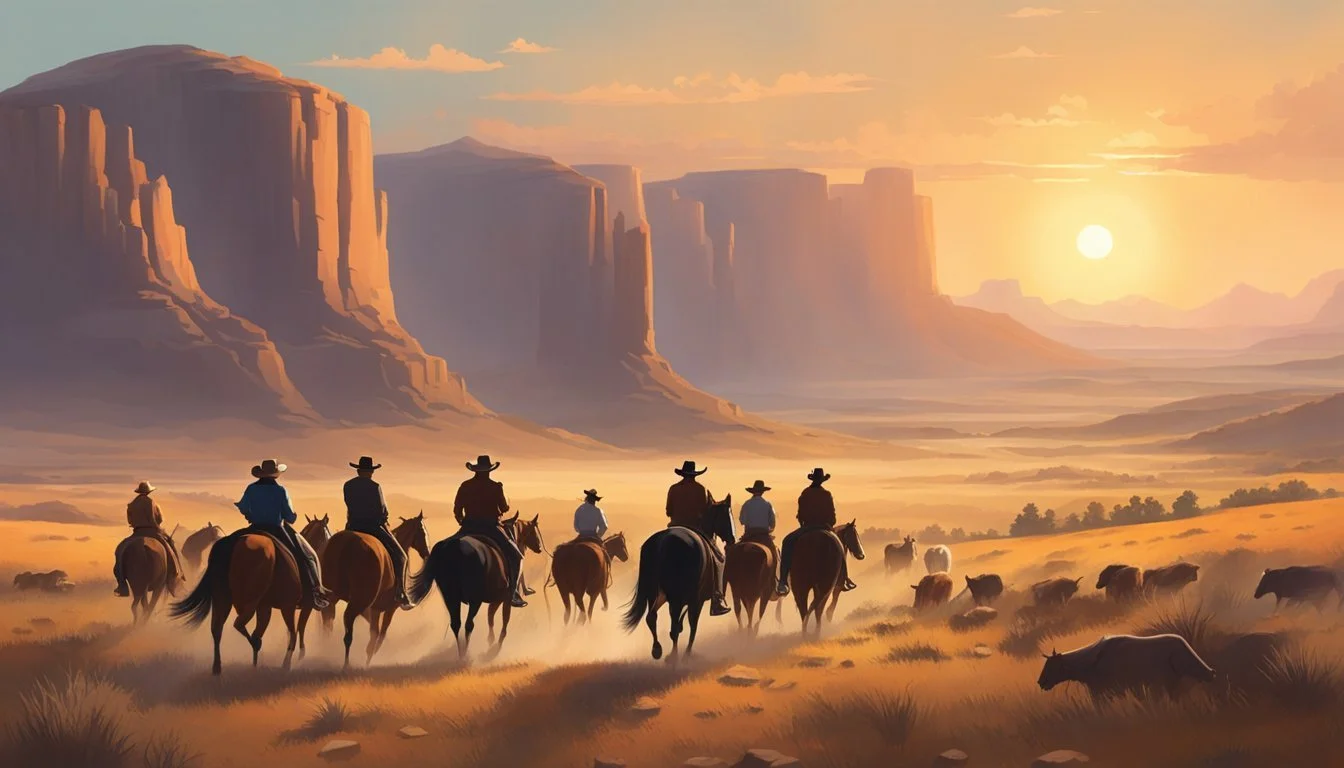Tate's Shocking Vegetarian Choice Could Destroy Yellowstone's Ranching Legacy
In the rugged landscape of Yellowstone, where ranching and hunting are deeply ingrained in the Dutton family's way of life, young Tate's potential decision to become a vegetarian would undoubtedly shake things up. As the son of Kayce and Monica Dutton, Tate has grown up surrounded by the traditions of cattle ranching and the harsh realities of life on the ranch.
If Tate were to choose a vegetarian lifestyle, it would likely create tension within the family and challenge the core values of the Yellowstone ranch. This decision could spark interesting conversations about personal beliefs, family traditions, and the changing attitudes towards food and animal welfare in modern society.
Tate's choice might also reflect the evolving perspectives of younger generations and their growing awareness of environmental and ethical concerns. As the heir to the Yellowstone legacy, Tate's dietary preferences could potentially influence the future direction of the ranch and its operations, making this hypothetical scenario a fascinating exploration of family dynamics and cultural shifts in the American West.
Understanding Tate's Motivations
Tate Dutton's potential decision to become a vegetarian stems from complex personal and environmental factors. His unique experiences and family dynamics shape his perspective on animals and nature.
Influence of Family Dynamics
Tate's upbringing on the Yellowstone ranch exposes him to both livestock farming and wildlife conservation. His father Kayce's role as a rancher and his mother Monica's Native American heritage create a unique blend of influences.
Beth Dutton's fierce protectiveness of Tate may inspire him to question traditional practices. John Dutton's struggle to preserve the ranch could prompt Tate to seek alternative ways to honor the land.
Tate's traumatic experiences, including kidnapping and violent encounters, might lead him to reject practices he perceives as cruel.
Environmental Awareness and Personal Growth
Tate's strong connection to nature, particularly the buffalo on the ranch, fosters a deep respect for animals. This bond could evolve into a desire to protect all creatures from harm.
As Tate matures, he may become more aware of environmental issues and the impact of meat production. This growing consciousness could drive him to explore vegetarianism as a way to reduce his ecological footprint.
Tate's Native American heritage, through his mother Monica, might inspire him to explore traditional plant-based diets and sustainable living practices. This cultural connection could reinforce his decision to avoid meat consumption.
Impact on the Dutton Ranch
Tate's decision to become a vegetarian would significantly alter the dynamics of the Dutton Ranch. This choice would affect cattle operations, ranch staff, and the overall business model of the iconic Yellowstone property.
Cattle Ranching and Meat Production Adjustments
The Dutton Ranch, known for its cattle operations, would face substantial changes. Tate's vegetarian stance might lead to a reduction in cattle herds or a shift towards dairy production. The ranch could explore alternatives like growing crops or raising animals for non-meat purposes.
Pasture land might be repurposed for vegetable farming or sustainable agriculture. This transition would require new equipment, skills, and market strategies. The ranch's identity as a cattle operation would undergo a dramatic transformation.
Reactions of the Ranch Hands
Ranch hands, accustomed to traditional cattle work, would likely struggle with Tate's decision. Some might resist the change, viewing it as a threat to their cowboy lifestyle. Others could adapt, learning new skills in crop management or animal care.
The shift might cause tension among long-time employees like Lloyd, who value their cowboy identity. New roles and responsibilities would emerge, potentially altering the ranch's workforce composition.
Training programs in sustainable farming practices might be necessary to retain and retool existing staff.
Business Implications for the Ranch's Future
Tate's vegetarian choice could open new revenue streams for the Dutton Ranch. Diversifying into plant-based products or eco-tourism could attract a different customer base. The ranch might partner with vegetarian food companies or develop its own line of meat alternatives.
However, transitioning from cattle ranching could lead to short-term financial challenges. The ranch would need to invest in new infrastructure and marketing strategies. Relationships with long-standing meat buyers and distributors would change.
The ranch's reputation in Montana's ranching community might shift, potentially affecting local partnerships and political influence.
Reception by Family and Friends
Tate's decision to become a vegetarian sends ripples through the Dutton family and ranch, eliciting varied responses from his relatives and close associates. Each family member grapples with this unexpected choice in their own unique way.
John Dutton's Response
John Dutton, Tate's grandfather and patriarch of the Yellowstone Ranch, is initially taken aback by his grandson's vegetarian stance. He struggles to reconcile this choice with the ranching lifestyle that has defined the Dutton family for generations.
John's reaction is a mix of confusion and concern. He worries about how Tate's decision might impact the boy's future role on the ranch. Despite his reservations, John attempts to understand Tate's perspective, albeit with some difficulty.
In private conversations with Beth and Kayce, John expresses his hope that this is just a phase Tate will outgrow.
Beth's Perspective on Tate's Choice
Beth Dutton, known for her sharp wit and protective nature, approaches Tate's vegetarianism with a blend of curiosity and support. She sees this as an opportunity for Tate to develop his own identity and values.
Beth engages Tate in thoughtful discussions about his reasons for becoming vegetarian. She helps him navigate potential challenges, such as meal planning and dealing with skeptical relatives.
Privately, Beth admires Tate's conviction and uses this situation to subtly challenge her father's traditional views. She becomes an unexpected ally for Tate, often defending his choice during family dinners.
Kayce and Monica's Support
Kayce and Monica, Tate's parents, offer the most immediate and unwavering support for their son's decision. They view this as a chance for Tate to explore his own beliefs and make independent choices.
Monica, drawing from her Native American heritage, helps Tate connect his vegetarianism to traditional values of respect for nature and animals. She adapts family meals to accommodate Tate's new diet.
Kayce, while initially surprised, respects Tate's decision. He works to create a supportive environment, even as he navigates his own role as a rancher and Tate's father.
Rip Wheeler's Reaction
Rip Wheeler, the ranch foreman and Beth's husband, has a pragmatic response to Tate's vegetarianism. His initial reaction is one of bemusement, but he quickly adapts to the situation.
Rip takes a hands-on approach, teaching Tate about the ranch's sustainable practices and the importance of responsible land management. He helps Tate understand the ecosystem of the ranch beyond just cattle raising.
In his gruff but caring way, Rip ensures that Tate's choice is respected by the ranch hands. He even surprises the family by occasionally preparing vegetarian meals for Tate during roundups and camping trips.
Cultural and Societal Context
Tate's potential shift to vegetarianism would challenge deeply ingrained cultural norms in ranch life. This change would intersect with evolving views on cowboy identity and traditional Western values.
Representation of Vegetarianism in Western Culture
Vegetarianism remains relatively uncommon in rural Western states like Montana. Ranching communities often view meat consumption as integral to their way of life. Cattle production forms the economic backbone of many small towns. Local diners and steakhouses serve as social hubs, with beef-centric menus reflecting regional tastes.
Some perceive vegetarianism as an urban trend at odds with rural values. Media portrayals frequently depict vegetarians as outsiders in Western settings. However, attitudes are slowly changing. Younger generations show more openness to plant-based diets, even in traditionally meat-loving areas.
Shifts in Cowboy Identity and Masculinity
The cowboy archetype is deeply tied to cattle ranching and meat consumption. Many associate beef with strength, hardiness, and masculinity in Western culture. A cowboy choosing vegetarianism might face skepticism from peers who view it as incompatible with their lifestyle.
Yet, conceptions of cowboy identity are evolving. Modern ranchers increasingly embrace sustainable practices and animal welfare concerns. Some are diversifying into plant-based agriculture. These shifts challenge traditional notions of masculinity in Western culture.
Tate's choice could represent a new generation redefining what it means to be a cowboy in Montana. His decision might spark conversations about balancing heritage with changing values in ranching communities.
Exploring Health and Lifestyle Changes
Tate's decision to become a vegetarian would bring significant changes to his diet and daily life on the ranch. This shift could impact his nutrition, physical health, and overall cowboy lifestyle.
Dietary Shifts and Nutrition for a Young Cowboy
A vegetarian diet for Tate would require careful planning to ensure he gets all necessary nutrients. Protein sources like beans, lentils, tofu, and nuts would replace meat. Iron-rich foods such as spinach and fortified cereals would be crucial.
Calcium from dairy or plant-based alternatives would support bone health. B12 supplements might be needed, as this vitamin is primarily found in animal products.
Tate's meals could include veggie burgers, bean burritos, and vegetable stir-fries. Snacks like trail mix and fruit would provide energy for ranch work.
Physical and Psychological Benefits
A well-planned vegetarian diet could offer Tate several health benefits. It may lower his risk of heart disease and certain cancers later in life. The increased fiber intake could improve digestion.
Tate might experience more stable energy levels throughout the day. This could enhance his focus during ranch tasks and schoolwork.
Psychologically, Tate may feel a sense of satisfaction in aligning his diet with his values. This decision could boost his confidence and sense of independence.
However, Tate might face challenges in social situations, especially during ranch barbecues or family meals. Support from his family would be crucial for his success.
Challenges and Conflicts
Tate's decision to become a vegetarian would likely face significant obstacles within the ranching community and his own family. His choice could spark tension between personal beliefs and long-standing traditions.
Resistance from Local Ranching Community
Tate's vegetarianism would likely be met with skepticism and opposition from the local ranching community. Cattle ranching is a cornerstone of the local economy and culture. Many ranchers might view Tate's choice as a rejection of their way of life.
The community could see his decision as a threat to their livelihoods. Some might worry that Tate's stance could influence others or lead to decreased demand for beef. This could create social isolation for Tate among his peers and neighbors.
Local events and gatherings often center around barbecues and meat-heavy meals. Tate's dietary restrictions could make him feel excluded from these important social occasions.
Negotiating Personal Beliefs with Family Legacy
Tate's vegetarianism would create significant tension within the Dutton family. The Duttons have a long history of cattle ranching, and this legacy is deeply ingrained in their identity.
John Dutton, Tate's grandfather, might see his choice as a rejection of family traditions. This could strain their relationship and potentially affect Tate's position within the family hierarchy.
Tate's parents, Kayce and Monica, might struggle to support his decision while maintaining harmony with the rest of the family. They could face pressure from both sides, trying to respect Tate's choices while upholding family expectations.
Family meals and gatherings would become challenging. Tate might feel isolated or burdensome when special accommodations are needed for his diet.
Environmental and Ethical Considerations
Tate's potential decision to become vegetarian raises important questions about environmental conservation and animal welfare on the Dutton Ranch.
The Role of Ranches in Environmental Conservation
Ranches like the Duttons' play a crucial role in land stewardship and habitat preservation. Well-managed grazing can help maintain grassland ecosystems and prevent soil erosion. Ranchers often work to protect watersheds and wildlife corridors on their properties.
The Dutton Ranch likely employs sustainable grazing practices that mimic natural herd movements. This approach can increase plant diversity and soil health. Many ranchers also participate in conservation easement programs to permanently protect portions of their land from development.
Responsible ranching can coexist with wildlife. The Duttons may implement strategies to reduce conflicts with predators like wolves and bears. These efforts help maintain biodiversity in the region surrounding Yellowstone.
Addressing Ethical Concerns about Animal Welfare
Tate's interest in vegetarianism may stem from concerns about animal treatment in the livestock industry. Ethical ranchers prioritize animal welfare through humane handling practices. This includes providing proper nutrition, veterinary care, and protection from extreme weather.
The Duttons likely use low-stress handling techniques when working with cattle. These methods reduce animal anxiety and potential injuries. Ranchers can also implement rotational grazing systems that allow cattle to exhibit natural behaviors.
Responsible ranchers aim to minimize animal suffering during transport and processing. The Duttons may partner with facilities that use Temple Grandin-designed systems for humane slaughter. Some ranches are exploring regenerative agriculture practices that further improve animal welfare standards.
Influence on Yellowstone's Narrative
Tate's hypothetical shift to vegetarianism would significantly impact Yellowstone's storytelling, character dynamics, and thematic exploration. This change would introduce new conflicts and growth opportunities within the Dutton family and ranch culture.
Character Arcs and Story Development
Tate's vegetarian choice would spark personal growth and familial tension. His relationship with John Dutton might strain as ranching traditions clash with Tate's new beliefs. This conflict could lead to poignant conversations about values and legacy.
Monica and Kayce's parenting approach would evolve, balancing respect for Tate's choices with ranch life realities. The writers could explore Tate's struggle to maintain his identity within a meat-centric culture.
Other characters might react differently. Beth could unexpectedly support Tate, while Rip grapples with the concept. This shift would add depth to existing relationships and create new alliances.
'Neo-Western' Themes and Storytelling Innovations
Tate's vegetarianism would introduce modern elements to Yellowstone's neo-Western narrative. The show could explore the intersection of traditional ranching and contemporary ethical concerns.
This storyline would allow Yellowstone to address environmental themes more directly. Discussions about sustainable ranching practices and animal welfare could emerge, adding complexity to the show's portrayal of land stewardship.
The writers might use this plot point to contrast urban and rural perspectives on food production. Tate's choice could spark broader conversations about changing attitudes in the American West.
This narrative shift would reinforce Yellowstone's ability to blend classic Western tropes with current social issues, further cementing its place in the neo-Western genre.
Media and Public Reaction
Tate Dutton's hypothetical decision to become vegetarian would likely spark intense debate among Yellowstone fans and media outlets. The storyline would intersect with broader cultural discussions about diet, tradition, and changing values in rural America.
Fan Discussions and Social Media Trends
Social media platforms would buzz with reactions from Yellowstone viewers. Many fans might express surprise or skepticism about Tate's choice, given the Dutton family's ranching heritage. Hashtags like #VegetarianTate or #DuttonDilemma could trend on Twitter.
Some viewers might praise the show for addressing contemporary issues, while others could criticize it as unrealistic. Fan forums would likely debate how Tate's decision might impact family dynamics and ranch operations.
Memes and jokes about vegan cowboys could circulate widely. Fan art depicting Tate with vegetables instead of cattle might become popular on Instagram and Pinterest.
Cultural Commentary and Critique
Media outlets would analyze the storyline's cultural significance. Op-eds in major newspapers might explore how Tate's vegetarianism reflects changing attitudes in younger generations.
TV critics could praise Yellowstone for tackling complex themes or criticize it for potentially alienating its core audience. Some might draw parallels to real-life tensions between traditional ranching communities and evolving dietary trends.
Rural lifestyle magazines might feature articles discussing the challenges of vegetarianism in cattle country. Food writers could pen pieces about plant-based alternatives to traditional Western cuisine.
The storyline might spark broader discussions about sustainability in agriculture and the future of ranching in America.


